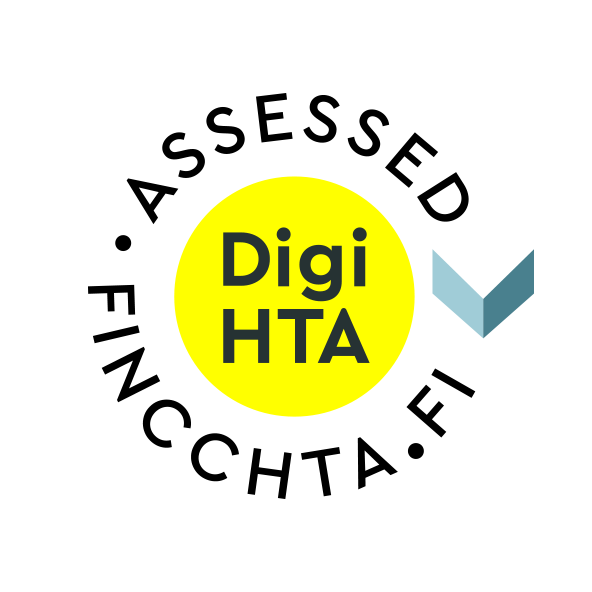The Vygon mobile application has been developed to support healthcare professionals and provides a digital platform with instructional manuals and videos for Vygon’s medical devices. The main objective of the application is to improve patient safety by increasing health care professionals’ awareness of the correct and safe use of Vygon products. In addition, it facilitates access to product user manuals and thus promotes their safe handling and maintenance [1].
Research evidence related to the assessed product
Public research concerning the product under evaluation were not available at the time of evaluation [1].
Literature reviews
When the literature review was conducted, no studies were found that would have dealt with the benefits conferred to the everyday work of professionals by the product under evaluation. Instead, the studies discussed in the literature review have focused more on how electronic and online services can contribute to health care training in general.
Summary
The 2018 Cochrane review pointed out that e-learning only has a limited impact on the competence of professionals compared to traditional methods, but does provide benefits such as accessibility and flexibility. A systematic review and meta-analysis published in 2022 showed that mobile applications can significantly improve the level of knowledge and clinical skills. Although there is no direct evidence, previous studies provide indirect support to the idea that mobile applications can contribute to patient safety and increased professional knowledge, supporting the objectives of the product under evaluation.
The 2018 Cochrane review examined the effects of e-learning on the training of health care professionals. The aim of the review was to assess whether e-learning (interactive online learning programmes) is more effective than traditional learning methods, in particular in terms of patient outcomes and improving the behaviours, skills, and knowledge of professionals. 16 studies were analysed, carried out in 10 different countries with a total of 5,679 participants (of whom 4,759 health care professionals, 587 registered nurses, 300 doctors, 33 paediatric health care consultants). The majority of studies were small, with only three studies featuring more than 150 participants. Taken together with insufficient reporting, this increased the risk of bias. [2]
The results of the review showed that compared to traditional learning, e-learning is likely to have little or no impact upon either patient-centred outcomes or upon the competence of health professionals. The impact on skills is uncertain and the impact on the level of knowledge may be limited or non-existent. [2]
The choice between e-learning and traditional learning requires careful consideration, taking into account not only the efficiency of the methods, but also accessibility, usability, data storage times, and costs. Traditional learning can be more effective in small groups where physical presence is possible, whereas e-learning can be a cheaper option to train a large number of professionals in a cost-effective manner. According to the review, there is insufficient evidence to claim e-learning offers better quality, but this is not to exclude some of the benefits of e-learning, such as better accessibility and flexibility. [2]
A systematic review and meta-analysis published in 2022 examined the effectiveness of mobile applications in medical education to improve academic performance and clinical skills among health care professionals and students. The review included 52 studies with a total of 4,057 participants. These studies compared the impact of mobile applications on the development of knowledge and skills with control groups or traditional teaching methods, such as video presentations, simulators, and printed materials [3].
Of the 52 studies selected for the review, 33 reported a significant increase in knowledge among participants using mobile applications, {standard mean difference SMD = 0.94 (95% confidence interval Cl [0.57—1.31], P < 0.00001)}. In addition, 19 studies demonstrated that mobile applications effectively improved clinical skills. On the other hand, a meta-analysis of six studies and 381 participants did not reveal any significant skill difference between the groups using and not using mobile applications {SMD = 0.36 (95% confidence interval Cl [-0.23—0.96], P = 0.23)}, which was partly explained by the limited number of skill measurements [3].
The review concludes mobile applications have proved to be effective tools for developing knowledge and skills among health care professionals. Both online and offline applications were equally effective in increasing knowledge, whether based on Android or iOS [3].


